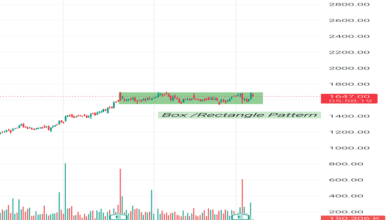Business
Industrial use and benefits of electrical enclosures :List of industries where enclosures use?

Electrical enclosures find widespread use across various industries where electrical equipment and components need protection from environmental factors, mechanical damage, and safety hazards. Electrical enclosure Manufacturers are making these enclosures according to industry nature. Some of the key industries that extensively utilize electrical enclosures include:
- Manufacturing and Industrial Facilities: Manufacturing plants and industrial facilities utilize electrical enclosures to house control panels, motor starters, PLCs (Programmable Logic Controllers), and other electrical components. These enclosures protect sensitive equipment from dust, moisture, and vibration, ensuring uninterrupted operation and minimizing downtime.
- Oil and Gas Industry: In the oil and gas industry, where operations often occur in hazardous environments with the presence of flammable gases and dust, explosion-proof electrical enclosures are crucial. These enclosures provide robust protection for electrical equipment, preventing ignition and minimizing the risk of explosions.
- Chemical Processing Plants: Chemical processing plants handle corrosive chemicals and aggressive substances, making corrosion-resistant electrical enclosures essential. These enclosures protect electrical equipment from chemical exposure, ensuring longevity and reliability in challenging operating conditions.
- Water and Wastewater Treatment Facilities: Electrical enclosures are utilized in water and wastewater treatment facilities to house instrumentation, control panels, and electrical distribution equipment. Weatherproof enclosures are often employed in outdoor installations to protect equipment from rain, humidity, and temperature fluctuations.
- Food and Beverage Industry: In food and beverage processing plants, where cleanliness and hygiene are paramount, stainless steel electrical enclosures are commonly used. These enclosures are easy to clean, resistant to corrosion, and comply with strict sanitation requirements, ensuring the safety and integrity of food production processes.
- Pharmaceutical Industry: The pharmaceutical industry relies on electrical enclosures to protect electrical equipment and instrumentation used in manufacturing processes, laboratory environments, and cleanroom facilities. Enclosures with smooth, crevice-free surfaces are preferred to facilitate cleaning and sterilization procedures.
- Renewable Energy Sector: In renewable energy applications such as solar farms and wind turbines, electrical enclosures are utilized to house inverters, control systems, and monitoring equipment. These enclosures provide protection against environmental elements and ensure the reliable operation of renewable energy infrastructure.
Benefits of Electrical Enclosures in Industrial Applications:
- Protection of electrical equipment from dust, moisture, corrosive substances, and mechanical damage.
- Prevention of electrical hazards such as short circuits, electrical shocks, and fires.
- Compliance with safety standards and regulations governing electrical installations in industrial environments.
- Reduction of downtime and maintenance costs by ensuring the longevity and reliability of electrical components.
- Facilitation of organization, cable management, and easy access to electrical equipment for maintenance and troubleshooting.
- Adaptability to diverse environmental conditions and operational requirements through customization options such as material selection, size, and mounting configurations.
In summary, electrical enclosures play a crucial role in ensuring the safety, reliability, and efficiency of electrical systems across a wide range of industries. By providing robust protection for electrical equipment and components, these enclosures contribute to the smooth operation of industrial processes and the protection of personnel and assets.




